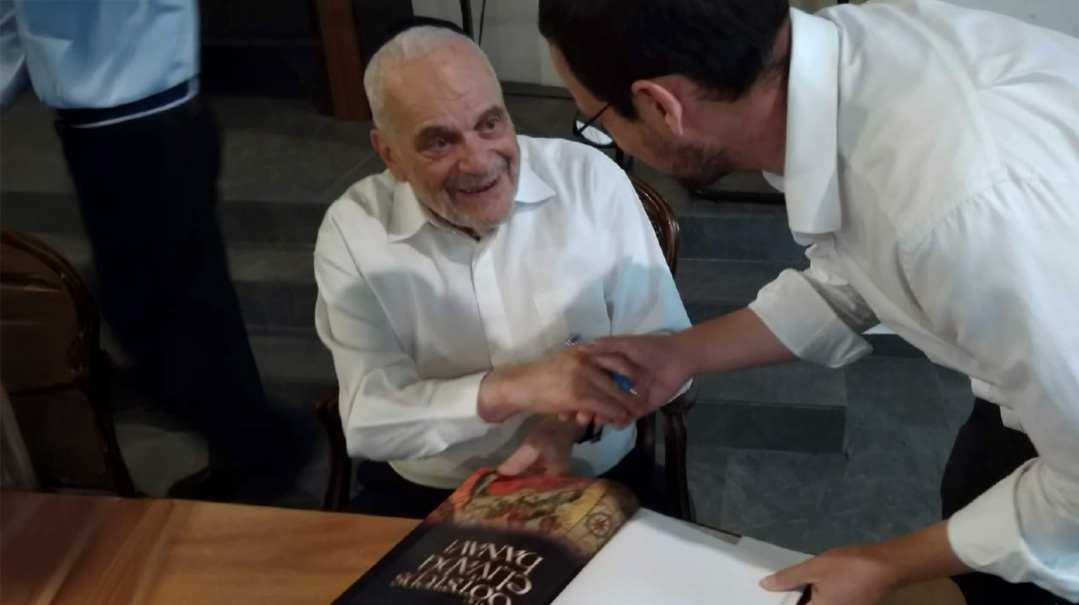Joy and Goodness


By Family and Friends of Aliza Grund
You always loved to make others happy. Joy and goodness, Aliza Gittel — the names your parents gave you suited you so well
A
liza Grund’s petirah last month left friends and family shocked and shattered. To mark her shloshim, five close friends and relatives share what they wish they could tell her
Dear Aliza,
How can I put to words a sister who was larger than life?
You were a strong and fearless fighter, yet an empathetic listener who was everybody’s friend; a public figure yet a private person deeply involved with your immediate and extended family; a woman who ran a business from home, who also led tours to Israel; head of N’shei, yet you had time to produce exquisite cuisine and professional patisserie.
A scene from our childhood reappears. I’m in my bedroom doing my homework. You’re busy on the phone organizing a Bnos convention. Later that night, as I drift off to sleep, you’re still on the phone. A niggling thought occurs — didn’t you have an important test? When will you study?
You did have that test. No, you didn’t study, and yes, you did remarkably well. Later it dawned on me: I had never, ever seen you study.
What was your secret? I don’t believe you were even aware that this was extraordinary. In your view, there was no choice: Work for the klal was obligatory and you gave it your all, meriting Divine reciprocity — an extra dose of siyata d’Shmaya.
Immediately upon graduating you were offered a prime job — teaching in your alma mater, Manhattan Day School, where you quickly endeared yourself to both pupils and staff. (Then, finally, I saw you preparing lessons!) Following your marriage, and subsequent move to Brooklyn, your role widened and your turf expanded — and your siyata d’Shmaya followed you.
As I sat through the shivah listening to stories about you and pondering the past, various thoughts swirled through my mind.
One could argue that you were born gifted, inherited the altruistic gene, and were a natural extrovert and leader. Yet how many leaders do we know who possess both fire and water, who are strong and powerful yet empathetic and truly humble?
One can say that you were able to unify various strata due to your background: You were born in Israel; raised on the Upper West Side; educated in Manhattan Day School, Breuer’s, and Rebbetzin Kaplan’s seminary; spent glorious summers in Camp Naarah. You were surrounded by a close-knit family. Your exposure to these diverse groups helped you relate to all types of people.
Yet who else would turn down a scholarship and leave City College (and a potentially lucrative future) in the mid ’60s, when so many of your peers were attending college? You felt that it was not a place for a frum girl and went against the tide. But despite your personal beliefs, you were able to relate to all women nonjudgmentally, regardless of their echelon in society, or branch in Klal Yisrael.
Having noted this duality, both leader and empathizer, I could end this piece and say “dayeinu.” Yet there was so much more, hidden from the public eye.
We, your family, witnessed how despite personal nisyonos, you were “maavirah al middosayich” and always judged others favorably. You were a baalas bitachon, yet never even considered yourself unique.
We siblings watched as you genuinely rejoiced with each of our children’s births. Like Aharon HaKohein, ra’asah v’samchah b’libah — you saw and rejoiced in your heart. And for us out-of-towners, you became the surrogate mother for our children, from the minute they arrived in New York. You shopped with them, sent them off to camp, worried about them, and visited them. Time flew, they grew, and again it was Aunt Aliza who saw them through shidduchim. Then you were busy with their wedding arrangements and sheva brachos — all while running your business and the N’shei.
The ability to transcend a natural human tendency, and so completely lose one’s own sense of self, is what great people are made of. Therein, I believe, lay the siyata d’Shmaya in your life.
Aliza, my only sister, you are irreplaceable. All we can hope to do is try to internalize your unique middos.
Debbie
(Excerpted from Family First, Issue 596)
Oops! We could not locate your form.













